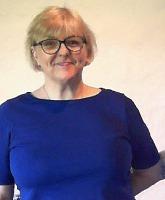Judith Carr is the Research Data Manager at the University of Liverpool. She attended IDCC 2020 with support from the DPC's Career Development Fund which is funded by DPC Supporters.
This is my second blog about the IDCC 2020 conference in Dublin.
In my first blog, I mentioned that for research data managers in the UK there is an added problem promoting and encouraging open research because our European colleagues ( who are doing great things) call open research ‘open science’. If we used the term science then all but the most enthusiastic early adopters of the open research culture in the humanities and social sciences would breathe a sigh of relief, ‘This doesn’t affect us, just STEM subjects. Great, we can ignore it!’. So we need to be careful when using information and reports from Europe.
Thus, I am already aware of how the context in which you use words can be a disadvantage and was thus, looking forward to the paper ‘“You say potato, I say potato” - Mapping Digital Preservation and Research Data Management Concepts towards Collective Curation and Preservation Strategies.’
This paper by Sarah Jones, Michelle Lindlar, Laurence Horton and Pia Rudnik[i] explored the models and terminology used in RDM and DP communities. By focusing on what unites rather than divides the communities, hoping such a holistic approach can help towards collective curation and preservation strategies.
A lot of work went into this paper, they looked at 6 models, 3 used in research data management and 3 used by the digital preservation community.
The models looked at were DMPs, FAIR data principles, the Lifecycle model for RDM, OAIS, PREMIS, and Object levels of preservation.
If you have the chance to look at the paper there is a neat table at the end that details the words used in all the models used alongside each other. This clearly illustrates how close and yet in some ways how different the models are.
In reality, though, are we that far apart? Listening to Sarah and Michelle talking and their conclusions I would say not really, as long as you are prepared to listen to each other and collaborate.
When you talk about keeping research data for a minimum of 10 years you soon realise that you have to understand the basics of digital preservation. This becomes more obvious when promoting FAIR data principles.
I found it interesting that by doing all this mapping work, the conclusions of the group highlighted that the communities can learn from each other, something my experiences have led me to believe.
Whilst I don’t necessarily mention the word preservation very often when talking to researchers about research data management requirements, because that is just one message too many, I am thinking about it. I am pushing the message about formats and the possibility of not keeping everything!
The paper details the different interpretations of the same words or words that are very similar.
The authors conclude that the concept of planning early, as detailed in the DMP model could be used in digital preservation, in turn, the concept of designated communities is something that could be used in RDM and applying digital preservation concepts to the FAIR data principles could make this model more effective.
This paper will be the spark for further discussions I am sure but one thing is true, as the authors said at the end of their presentation. ‘We are all in it for the data’
Thanks again to the DPC and their grant. I really enjoyed the conference, it has given me a lot to think about and to inform our service at the University of Liverpool.
The Career Development Fund is sponsored by the DPC’s Supporters who recognize the benefit and seek to support a connected and trained digital preservation workforce. We gratefully acknowledge their financial support to this programme and ask applicants to acknowledge that support in any communications that result. At the time of writing, the Career Development Fund is supported by Arkivum, Artefactual Systems Inc., CAE Technology, Formpipe, Libnova, Max Communications, MirrorWeb and Preservica. A full list of supporters is online here.
References
Lindlar, M., Rudnik, P., Horton, L. & Jones, S. (2020) "You say potato, I say potato” - Mapping Digital Preservation and Research Data Management Concepts towards Collective Curation and Preservation Strategies, online at: https://doi.org/10.5281/zenodo.3664986
[i]Laurence Horton - University of Toronto
Sarah Jones - Digital Curation Centre
Michelle Lindlar - Leibniz Information Centre for Science and Technology
Pia Rudnik - ZB MED - Information Centre for Life
















































































































































